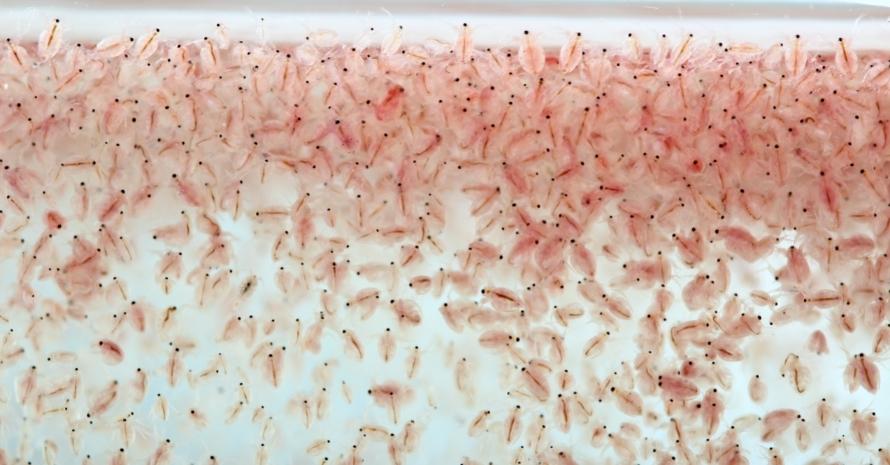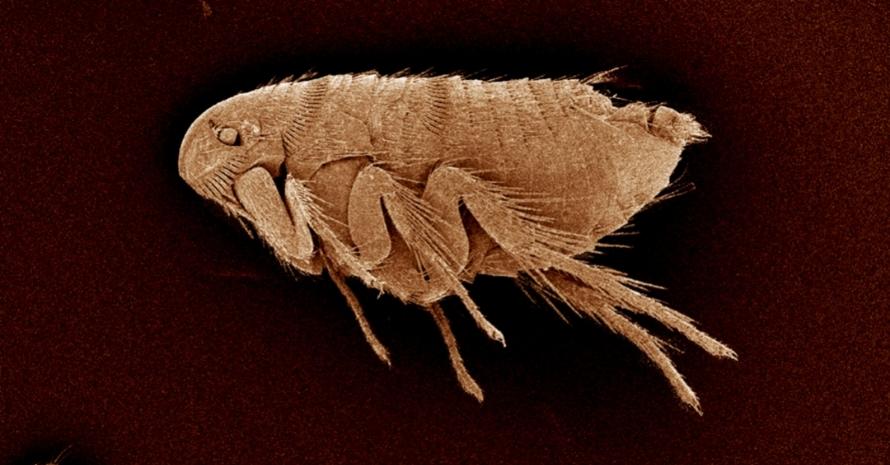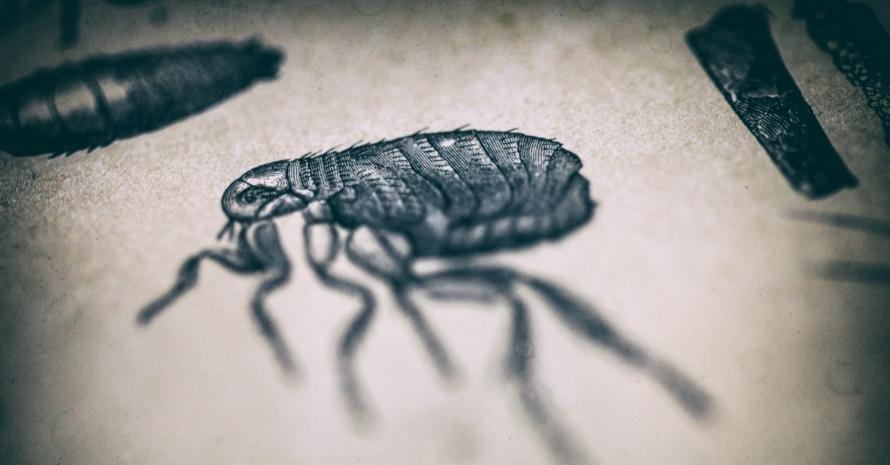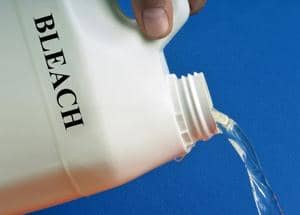Does bleach kill fleas? This is an important question for pet owners. Fleas are a nuisance that can damage your health. They are also difficult to control due to their small size and ability to hide in hard-to-reach places. Faced with the problem of pests at home, people resort to many measures to get rid of the insects. Some methods can be useless or even dangerous. It is important to find an effective but safe way so that not to harm the health of your pet and your own.
Guide on Getting Rid of Fleas With Bleach
- Remove animals from the apartment.
- Do a thorough cleaning.
- Prepare a bleach solution.
- Spray all surfaces.
- Wash your clothes and the pets’ bedding.
- Ventilate the flat well after the treatment.
- Rinse all objects and surfaces in your house.
How to Use Bleach Against Fleas
Fleas seem to make your furry pet uncomfortable and itchy all the time, but these insects are also dangerous for both the pet and you. Foremost, fleas are carriers of diseases. Whether your dog gets flea-bitten or swallowed, both cases can cause illness. Fleas can also bite you. Their bites are very itchy. Scratching the bite area on your body can also provoke an infection.

Fleas can bring a lot of problems into your home. If you find even one flea in your home or on your pet’s body, you should start preventive measures immediately. Flea control is a painstaking task. Even if you think you’ve killed the last flea in the house, there might still be one larva left somewhere that will become a problem for you again after a while.
There are many methods of controlling fleas. But what if you have to act urgently? Will chlorine kill fleas? This is a simple remedy that everyone has at home.’
Does flea bleach kill fleas?
Bleach kills fleas as it is a strong disinfectant. It acts aggressively on all living organisms. If you stick to the rules of use, you can get rid of fleas without harming others. You can destroy the pests by drowning them in bleach. However, not all fleas are easily noticeable since they are located in different parts of your home. Also, you can’t use bleach on all surfaces.
Bleach kills fleas almost instantly. The stronger the concentration, the faster a flea is killed. The pests get suffocated by inhaling the gas that bleach releases. Getting the substance on the insect’s body causes severe burns.
You can’t poison the insects with the smell only. Bleach is most effective if you apply it directly to fleas at a short distance.
Does bleach kill fleas on hard surfaces?
Bleach is great for fighting fleas on any kind of surface, be it tiles, cement, or wood. It is important to remember that if the wood is varnished, bleach can damage it. It is essential to use the right concentration to avoid damaging your furnishings, floor, and walls.
Using bleach for flea infestations and covered flea eggs
Will bleach water kill fleas? — Yes. This is a handy way to apply bleach at home, but if you use a spray gun.
If you are convinced that fleas live in your home, you should start exterminating them immediately. Before using flea bleach, you must remove all animals from your house. This applies not only to cats and dogs but also to fish, hamsters, turtles, etc. People also shouldn’t stay indoors after using bleach. This is especially related to small children. Therefore, it is best to move to another place for the next few days.
Once you take your pets and children to a safe place, proceed to the next steps:
- Prepare a bleach solution, for example, 1 part bleach to 10 parts water. Ensure to wear clothing that covers your hands and feet and use gloves. Goggles will prevent chlorine from getting into your eyes. It would be great if you had a mask to completely cover your face.
- Before you start treating surfaces in your house with the solution, vacuum the floors and mats. Vacuuming will lift the lint on the carpets, so it will be easier for bleach to stick to the base of the carpet and poison fleas.
- Spray the solution on with a spray gun. Make sure you treat all areas where the pests might live or where they lay eggs. It is better to apply the solution with a syringe in hard-to-reach places such as under baseboards or in crevices.
- Wash pet’s clothes and bedding in hot water. You can add chlorine to them if they are not made of delicate fabrics.
- After you treat your home, the room should be well-ventilated. Cleaning the house is the final step in pest control. You need to thoroughly rinse the bleach off all surfaces.
Remember that the main carrier of fleas in the house is your cat or dog. The animals should also be treated for fleas with special products from the veterinary pharmacy.
Frequency of bleach use

Bleach should be used until you are sure there are no pests left in your home. However, it is not a good idea to treat your apartment daily. You can hurt yourself, your pet, and the furniture. Fleas have a breeding rate of about 30 days. If you poison all the pests but leave their eggs somewhere, new fleas will hatch in about a month. That’s why it’s a good idea to sprinkle flea bleach once a month.
Safety precautions for use
Using bleach incorrectly can be dangerous to your health. Be sure to follow the recommendations below:
- Keep pets away from the house while using the solution;
- After treatment, you should thoroughly wash all surfaces with water so that your pets do not have direct contact with the bleach;
- To avoid getting burns to the skin and mucous membranes, you must wear gloves and a face mask. Wear goggles as well while treating the house with bleach;
- Before you start spraying the bleach solution on furniture, floors, and other items, test the effect of the chemical on a small area of furniture. Make sure that the product does not leave white spots;
- In an attempt to get rid of fleas once and for all, do not make an overly concentrated solution. Chlorine does not affect flea pupae anyway. They will continue their lifecycle, and in a couple of weeks, fleas will be hopping around your flat again. Therefore, it is better to repeat the treatment after a month without ruining things in your apartment.
Will bleach kill fleas in the yard?
If you thoroughly disinfect the house and your pet comes back from the yard scratching a lot, there will be fleas too. It’s much harder to control fleas outdoors than indoors. The backyard is full of stolen spots where the pests can live and breed comfortably. Before you get rid of fleas outside, you need to create an environment where they won’t want to stay:
- Trim the bushes that are too tall;
- Clean up your yard so that there is as little enclosed space where the vermin can live as possible;
- If there are many trees in your yard, you need to cut long branches, especially those that are low to the ground. Fleas do not tolerate direct sunlight.
Once you tidy up your yard, you can treat it with bleach. The solution can damage your lawn and other plants. Therefore, you should never make it too concentrated. To prevent plants from dying, you should not spray bleach on them more often than once every 1 to 1,5 months.
FAQ About Using Bleach on Fleas

We’ve already found out that bleach is suitable to get rid of fleas at home. Answers to other popular questions should help you use the pest repellent correctly.
Does bleach kill all stages of fleas?
The flea stages are an egg, a larva, a pupa, and an adult flea. Mature fleas are killed immediately by direct contact with bleach. Eggs and larvae are also killed by bleach but the task is difficult because they are hidden in the most inaccessible places. This is the reason why it is necessary to re-treat after one month.
How effective is bleach on fleas?
Bleach is an effective flea killer. Aggressive to all living creatures on direct contact, it causes burns and dehydration. If you manage to apply it directly to the insect, it will instantly die. The effect also depends on concentration. Remember that an excessively concentrated solution can damage your furniture.
Is bleach harmful to dogs?
To avoid poisoning your pets during disinfection, you should remove them from the house. After treating the house with bleach, it should be thoroughly washed off all surfaces. As dogs lick their paws, don’t allow the pet to come into contact with the treated surfaces.
Use Bleach to Solve the Flea Problem
If you’ve been wondering: “Does bleach kill fleas and eggs?” — you know the answer now. Bleach is an effective treatment for exterminating fleas in the home. It is popular because it is cheap and easy to use. Bleach not only kills fleas and their eggs but is an excellent disinfectant. A mild bleach solution can be applied as a preventive measure against parasites.
Tell us about your experience of getting rid of fleas. Did you use bleach? How quickly did you manage to solve the problem of fleas in your house?
Also Read:
- Does Salt Kill Fleas? Myths and Truth
- Does Pine-Sol Kill Fleas? Household Chemistry Repellent
- Does Lime Kill Fleas? Benefits, Types, and Safety Rules
- Does Peroxide Kill Fleas: Guide to Remove These Pests
- Does Baking Soda Kill Fleas? People Saying VS Scientific Evidence
References:
- Fleas (University of Minnesota)
https://extension.umn.edu/biting-insects/fleas - Flea diseases (Ehrlich)
https://www.jcehrlich.com/fleas/diseases/ - Controlling Fleas and Ticks Around Your Home (US Environmental Protection Agency) https://www.epa.gov/pets/controlling-fleas-and-ticks-around-your-home
- Cleaning and Sanitizing with Bleach after an Emergency (U.S. Department of Health & Human Services) https://www.cdc.gov/disasters/bleach.html

